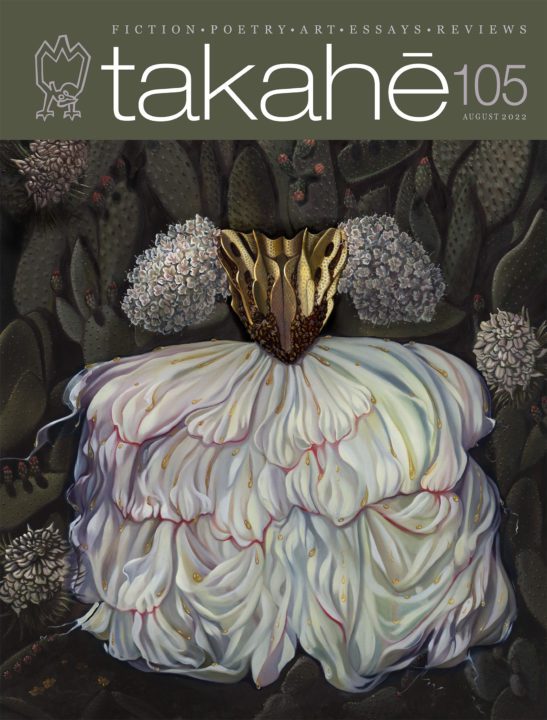For Roberto Calasso

1.
The Gods live in our words,
if they exist at all,
to which my musings about birds
can’t be seen as peripheral,
as when, let’s say, this wax-eye’s
skittering attracts my
attention, fitfully tupping
at moist clumps of moss
in the cracks zigzagging across
our patio, movement interrupting
what each moment presents him
anew – a little vortex
of concentrated momentum
neither before nor next
to now, the point when our cat,
a sullen acrobat
not given to announce his
intentions, in a blur
of concerted claw and fur,
all at once pounces.
- Remember when the world,
such as it was, got spoken
into being? As formlessness swirled
and eddied, a baby awoke in
darkness, the universe
in his colicky belly. His nurse,
it’s said, was Night. A din
of cymbals and song filled the cave
The woman, now light, gave
a smile. He felt time begin
and started to feel nauseous,
so much so he began to vomit.
His tummy shook – of course this
is all just words – and from it
came the trees and the rivers,
and all else that gives us
life; it was to himself that Zeus,
along with the fire in the earth
and the stars above it, had given birth,
forever singular yet profuse.
3.
Roberto Calasso is dead,
the daemon has quit his body.
Nothing more need be said,
except that whatever gods we
tell ourselves we have banished,
they’ve never done as man’s wished.
But for a different perspective,
look beyond the feathers
and blood to where the weather’s
coming from: do nothing except live
and look over there, southwards –
notice, perhaps, how far it
goes on. In your mouth words
take shape: the sound of scarlet
poppies amidst golden wheat.
It seems you have guests to greet.
So tell me: what matter’s myth
in this world of orange and turquoise,
hardness and brightness, and your voice
is all you’ve got to conjure with?
Robert McLean is a poet and critic. His collected poems were published in 2020 by Cold Hub Press. He lives in Lyttelton and works in Wellington for the New Zealand government.